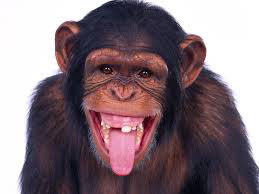
When most people consider getting a pet, the obvious choice of animal is a cat or a dog, as they are well suited to the suburban setting, and make great companions. In Australia we are a pet loving nation with an estimated 36% of households owning a dog and 23% owning a cat. This equates to a population of 3.4 million dogs and 2.3 million cats. To add to the mix, plenty of people also enjoy owning rabbits, guinea pigs, ferrets, fish, birds and the odd miniature pig. Some people have a love for non-furry creatures and keep lizards, snakes, frogs, turtles and even hermit crabs, but that is about as unusual as it gets for us, as the importation of exotic animals into Australia is controlled by stringent laws set out by government departments and quarantine services. This restricts the ownership of exotic species such as monkeys and lions to licensed persons, usually only for exhibition or conservation purposes, so they cannot be sold for commercial purposes or kept as pets by private owners.
Similar restrictions apply to most Australian native wildlife species; they are protected and cannot be kept as pets, except for a few species of birds and reptiles, as long as they have not been caught from the wild. Special permits are necessary to house most Australian species (kangaroos, possums, wombats, koalas, magpies, kookaburras, many reptiles); usually only zoos and fauna parks are given permits to hold these animals.
However, outside of Australia, many countries have much more relaxed regulations. Privately owning exotic animals is currently still permitted in a handful of states in the USA with no restrictions, creating a crazy scenario where you will need a license to own a dog, but are free to purchase a lion or a baboon and keep it as a pet.


Some of the more popular species taking up residence in suburban homes are the Capybara, Serval, Sloth, monkeys, Chinchilla, Wallaby, Sugar Glider, Kinkajou, hedgehog, fennec fox, skunks, pot bellied pigs.



Most of these are bred in captivity for the commercial market, and although they are no longer completely wild, they are far from domesticated, which raises many issues relating to animal welfare and human safety. So while they are extremely cute and adorable, there have been countless incidents of human injury and death, and zoonotic disease spread due to these exotic species having close contact with people and living in environments not suited to their natural needs.
So in my books, even though a Fennec fox has a face to melt anyone's heart, dogs and cats still come up trumps as the ideal pets to share our lives with.






